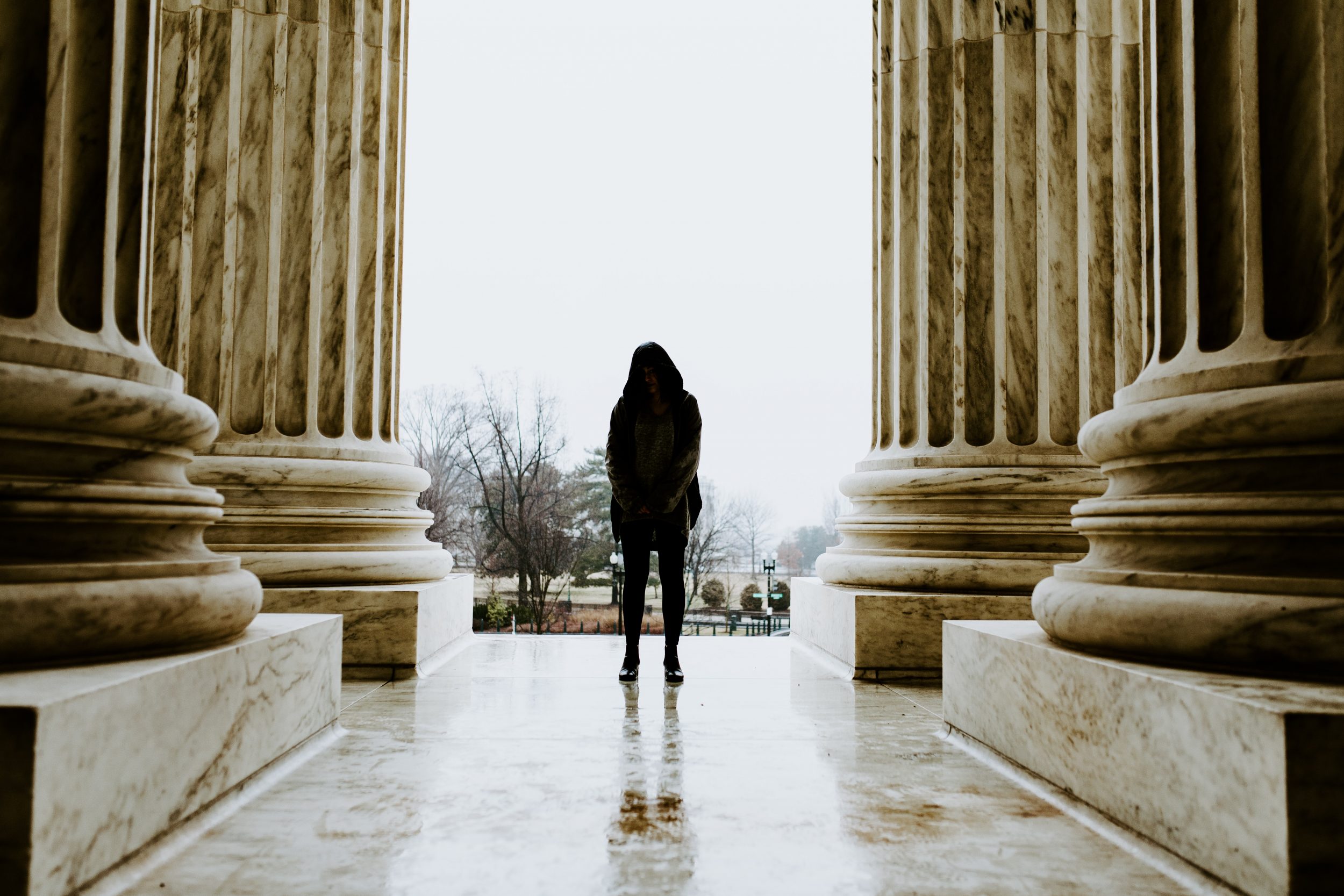The Senate confirmation of Ketanji Brown Jackson to the Supreme Court last week means that she is soon to be the first Supreme Court justice with prior experience as a federal public defender. This is historic in its own right, though it is not quite as surprising on closer inspection, since the institution of the federal public defender — in its currently prevailing organizational particulars, anyway — dates back only to the 1970s. Still, given that several of the justices previously worked as federal prosecutors, Jackson’s confirmation injects a welcome measure of professional balance to the lineup. Moreover, Jackson can rightfully claim the mantle of being the first justice since Thurgood Marshall with meaningful criminal defense experience.
For all of these reasons and many more, Jackson’s ascension is worth celebrating and comports well with the Biden administration’s broader campaign to promote “professional diversity” in the federal judiciary. As she noted during her Senate hearings, this diversity matters to the Supreme Court because “it lends and bolsters public confidence in our system.”
At the same time, Jackson’s public defender experience should not be overblown. According to her questionnaire for the Senate Judiciary Committee, she spent two years in the appellate division of the federal public defender’s office in Washington, D.C., arguing cases in the U.S. Court of Appeals for the D.C. Circuit. Notably, she transitioned from there into another appellate litigation gig — at the corporate law firm of Morrison & Foerster. Certainly, Jackson would bring to the court a three-dimensional understanding of federal criminal law. That’s not solely because of her stint as a federal defender: She also spent several years as a member of the U.S. Sentencing Commission. And of course, in her tenure as a federal district judge, she oversaw trials and personally sentenced defendants convicted of federal crimes. She and her family have even felt the sting of mass incarceration.
Yet in its broad outlines, Jackson’s resume — with two Harvard degrees, a Supreme Court clerkship, and a mix of government and D.C. corporate work before joining the federal judiciary — actually resembles that of Chief Justice John Roberts as much as it evokes any memory of Thurgood Marshall. For all the ways in which Justice Jackson would represent an important “first,” her nomination also solidifies what seems to be an enduring and bipartisan shift towards treating the Supreme Court as a kind of pinnacle prize for meritocratic strivers within the legal profession, rather than a historical hodgepodge of prominent lawyers, presidential cronies, and assorted ex-politicians.
In several ways, Jackson’s stint at the federal defender likely bore little resemblance to the day-to-day work of the thousands of public defenders around the country who work in the more overburdened state-level criminal courts. Yes, she presumably gained insight into the perspective of criminal defendants and the behind-the-scenes operations of a defender agency. But appellate work involves more writing and research than haggling over plea deals, and appellate work before the famously self-important D.C. Circuit has a distinctive cachet. Then too, federal criminal practice is idiosyncratic: The substantive law is often more draconian than state law, but the federal courts are better resourced and staffed by appointed jurists with the independence borne of lifetime tenure, rather than elected judges, as many states have.
The Supreme Court, then, will presumably continue for the foreseeable future to lack any justice with meaningful criminal defense experience in state courts. Yet the state courts are where the vast majority of cases are decided each year. And thus, the state courts are where the majority of people in prison in the United States are tried and convicted. They’re the engines of mass incarceration.
On the other hand, the Supreme Court exercises much less influence over the working conditions of state-level public defenders than one might think. Of course, the court issues authoritative rulings about constitutional criminal procedure with which (ostensibly) the states are supposed to comply. Indeed, it was one such ruling, Gideon v. Wainwright in 1963, that spurred the expansion and institutionalization of the modern public defender. Gideon held that the Sixth Amendment, applied to the states through the Fourteenth Amendment, requires the states to provide counsel for indigent defendants in all serious criminal proceedings. It would be difficult to meet that requirement simply through ad hoc, pro bono service, so the legal profession recommended, as the policy gold standard — if not an official requirement — that localities establish publicly-funded, full-time defender agencies. (There were public defenders in some jurisdictions prior to Gideon, but not on the scale that exists today.)
In the decades since Gideon, though, the Supreme Court has remained relatively hands-off about the details of implementing the constitutional right to counsel. For decades, public defenders have complained that they are overworked and underfunded. Yet the justices have never translated Gideon into a set of structural requirements for indigent defense policy. The court, for example, has never held as a matter of constitutional law that the states are required to adopt any particular funding level or mechanism, or any particular set of hiring or training standards.
As law professor Lauren Sudeall has written, “the Sixth Amendment framework is incapable of fully addressing the fact that the systems created to provide legal representation to indigent defendants are chronically under-resourced.” Defendants may appeal if they receive inadequate representation in their individual case (although even there, the standards are steep), but any remedy would be specific to them. Advocates have found it more challenging to construct viable legal claims where the issue is not any one lawyer’s individual failings, but chronic underfunding of public defense. On the few occasions where such claims have succeeded, it has typically been in the state courts, rather than the federal courts.
For contrast, consider the long and tangled history of Supreme Court intervention into the nation’s public schools. In the U.S. political tradition, schools are often described as quintessentially local institutions. Yet in the decades after Brown v. Board of Education (1954), both the Supreme Court and the lower federal courts became increasingly involved in overseeing local school districts under the auspices of desegregation litigation. One could imagine a world where the court had encouraged a similar degree of federal judicial oversight over local defender agencies to implement Gideon. But for a variety of reasons, the federal courts have always remained much more hesitant to intervene in the state courts, the province of fellow judges whom they regard as professional peers.
This lack of sustained involvement in the field has not stopped the justices from occasionally opining on indigent defense policy. In fact, in 2019, Justice Clarence Thomas expressed doubts about Gideon.
In a dissenting opinion in a case called Garza v. Idaho, which clarified how courts should address prisoners’ claims that they received deficient legal representation, Thomas went out of his way to observe how, in his view, Gideon is inconsistent with the Constitution’s “original meaning.” (It has long been assumed that if the Supreme Court stuck to the Sixth Amendment’s meaning as understood in 1791, then it would not affirmatively require states to provide counsel to indigent defendants. Rather, the Amendment’s Assistance of Counsel Clause originally responded to the English practice that prohibited felony defendants from appearing in court with counsel. Departing from the English rule, the Sixth Amendment provided that if a defendant did have a lawyer, then the court should permit that lawyer to participate in the proceedings.)
Thomas has criticized myriad precedents on so-calledoriginalist grounds, of course. Still, his complaint in Garza was striking because Gideon had largely been spared criticism, even from legal conservatives. Under the banner of originalism, the conservative legal movement that gained steam in the 1980s has sought, with varying degrees of success, to overturn or limit many landmark precedents, including Miranda v. Arizona (1966), which requires police to notify suspects of their rights, and Roe v. Wade (1973), which established the right to abortion. Yet on the occasion of Gideon’s 25th anniversary in 1988, New York Times columnist Anthony Lewis reported that President Reagan’s attorney general, Edwin Meese III — a staunch law-and-order conservative, and a prominent originalist — had “no quarrel with the Gideon decision.” Meese told Lewis that he considered “representation by counsel in all criminal cases” to be “essential to the fair and effective administration of justice.”
As a legal historian, what I found most shocking in Thomas’s dissent was not the originalist criticism of Sixth Amendment jurisprudence, but rather a factual claim about more recent history that he makes near the end of his opinion. “History proves,” Thomas wrote, that the states “are capable of making the policy determinations necessary to assign public resources for appointed counsel.” Whenever a judge claims that “history proves” anything, it is appropriate to raise one’s eyebrows. To support his contention that Gideon may not have been necessary, Thomas cites statistics showing that prior to Gideon, most states were already making some effort to provide counsel to indigent defendants in some set of cases.
But such figures oversimplify a more complicated history. As I write in Free Justice: A History of the Public Defender in Twentieth-Century America,before 1963, many states provided for appointed counsel in theory, but they often failed to provide meaningful legal representation in practice. In some places, indigent defense was left to private charities, which proved persistently incapable of raising adequate funds to meet the needs of defendants. The Supreme Court’s opinion in Gideon reflected, in part, a recognition that the existing patchwork of local practices was insufficient to guarantee fair trials. Gideon pushed many states and localities away from private charity and toward more direct public funding of indigent defense, even if the levels of funding, over the decades, have remained too low.
Still less does the more recent history of indigent defense support Thomas’s assessment. In the same month that Thomas was presumably putting the final touches on his Garza dissent, The New York Times published an exposé profiling a former Louisiana public defender who had 194 active felony cases at the same time, including several facing life without parole. That crushing reality is all too common, and as public defenders in Minnesota recently demonstrated, they may yet bring the system to a halt if they’re not compensated fairly for their overwhelming caseloads.
Justice Thomas may think that “history proves” the states don’t need the Supreme Court to micromanage them, but our slow and painful slog toward a more perfect Union indicates the opposite. And in understanding the constitutional right to counsel, the Sixth Amendment is not the only relevant textual provision; the Fourteenth Amendment, which altered our nation’s constitutional order in the aftermath of the Civil War, demands equality and due process — including fair criminal trials — for all. To enforce this guarantee, perhaps the Supreme Court should have engaged in a lot more, Brown-like micromanagement of post-Gideon implementation.
But even more robust Supreme Court oversight would not, alone, be sufficient to guarantee equal justice in the nation’s criminal courts. Policymakers, the legal profession, and ordinary voters and citizens all have roles to play. To secure equal justice, we the people will have to demand it. As we rightly celebrate one former public defender’s ascension to the Supreme Court, we should also redouble our commitment to support the thousands of public defenders who will never become household names, but who demand equal justice every day on behalf of their clients in lower-level courts across the nation.
Image: Zach Camp/Unsplash

